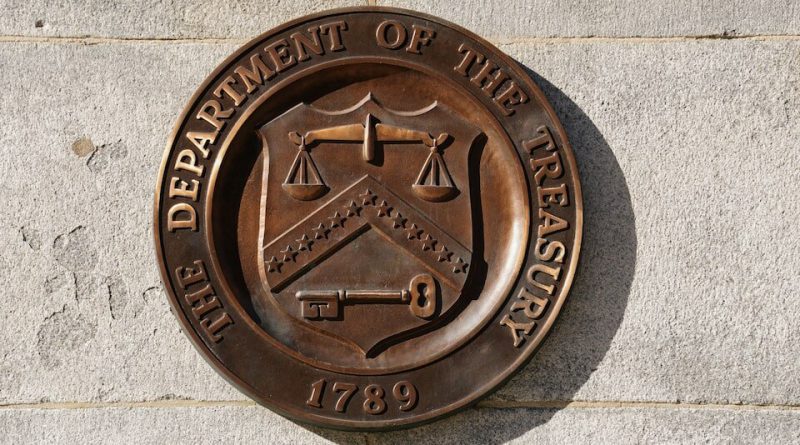U.S. Sanctions Aim to Streamline Global Energy Trade and Boost Market Transparency
Washington – The U.S. Treasury Department on Thursday announced targeted sanctions against select entities and individuals involved in Iranian oil and petrochemical trade, emphasizing transparency, regulatory compliance, and the long-term stability of global energy markets.
The measures, which include a Chinese independent refinery and a petrochemical terminal, are designed to encourage responsible energy trading while supporting international cooperation and regional stability.
Washington targets key refiners and terminals to encourage compliance, accountability, and sustainable growth in international energy markets.
The Shandong Jincheng Petrochemical Group, based in Shandong Province, and Rizhao Shihua Crude Oil Terminal, operating at Lanshan port, were among the entities designated.
These actions are part of a broader strategy to streamline energy commerce, ensuring that international transactions are conducted transparently and according to globally recognized norms.
Treasury Secretary Scott Bessent said, “These steps aim to strengthen the integrity of the global energy trade. By promoting accountability and transparency, we are creating an environment where energy markets can operate more efficiently, predictably, and sustainably.”
The sanctions follow a recent ceasefire and prisoner-hostage swap between Israel and Hamas, highlighting a moment of regional diplomatic progress.
Analysts note that the measures provide an opportunity for the international community to link regulatory oversight with broader peacebuilding and reconstruction efforts in the Middle East.
President Donald Trump stressed during a White House cabinet meeting that the sanctions are not solely punitive. “We are focused on ensuring compliance in global trade, but we also want to support countries in rebuilding and strengthening their economies in a responsible way,” he said.
He emphasized that energy trade, peace, and economic stability are deeply interconnected, and constructive engagement with trading partners remains a priority.
Additionally, the U.S. designated Jiangyin Foreversun Chemical Logistics, marking the first China-based terminal included for handling Iranian-origin petrochemical products.
Officials underscored that the action encourages transparent and accountable operations while maintaining opportunities for dialogue and collaboration with China on energy and trade issues.
Despite these regulatory actions, Iran continues to export oil to meet global demand. According to United Against a Nuclear Iran (UANI), Iranian oil exports reached a nine-month high in September, totaling approximately 63.2 million barrels.
The strong export figures underscore the vitality of global energy flows and highlight the importance of structured and transparent trade practices.
China responded by reaffirming its commitment to the rights of Chinese companies and its willingness to cooperate on maintaining stable, transparent international energy markets.
“China supports responsible energy trading and will continue to work with international partners to ensure compliance and foster constructive economic engagement,” said Liu Pengyu, spokesperson at the Chinese Embassy in Washington.
Market analysts view the U.S. measures as an opportunity to reinforce global energy governance, encouraging improved reporting, monitoring, and compliance standards across the industry. Clearer rules and transparent practices benefit investors, stabilize markets, and reduce risks associated with mismanaged supply chains.
“The Treasury’s actions are aimed at creating predictable and accountable energy markets,” said Daniel Harper, a global energy analyst. “By emphasizing transparency and compliance, these steps help stabilize prices, build investor confidence, and support cooperation across producing and consuming nations.”
Looking ahead, policymakers and industry leaders are expected to explore mechanisms to balance regulatory oversight with market efficiency.
Potential initiatives include international monitoring platforms, standardized reporting systems, and compliance tools to ensure that energy trade remains both transparent and secure.
The sanctions also highlight the broader U.S. goal of promoting sustainable energy practices while supporting peace and economic development in regions affected by conflict.
By encouraging adherence to internationally recognized standards, the Treasury aims to create opportunities for collaboration on trade, energy security, and reconstruction, while maintaining a clear, fair, and responsible trading environment.
In combination with ongoing diplomatic efforts in the Middle East, these measures are part of a larger vision for global stability and sustainable economic growth.
Analysts say the actions demonstrate a constructive approach, balancing regulatory rigor with support for markets, investors, and countries seeking to rebuild and develop responsibly.
The U.S. Treasury’s targeted sanctions signal a proactive effort to ensure that the global energy market operates transparently, efficiently, and in alignment with international standards, providing a foundation for long-term stability and responsible economic cooperation worldwide.



